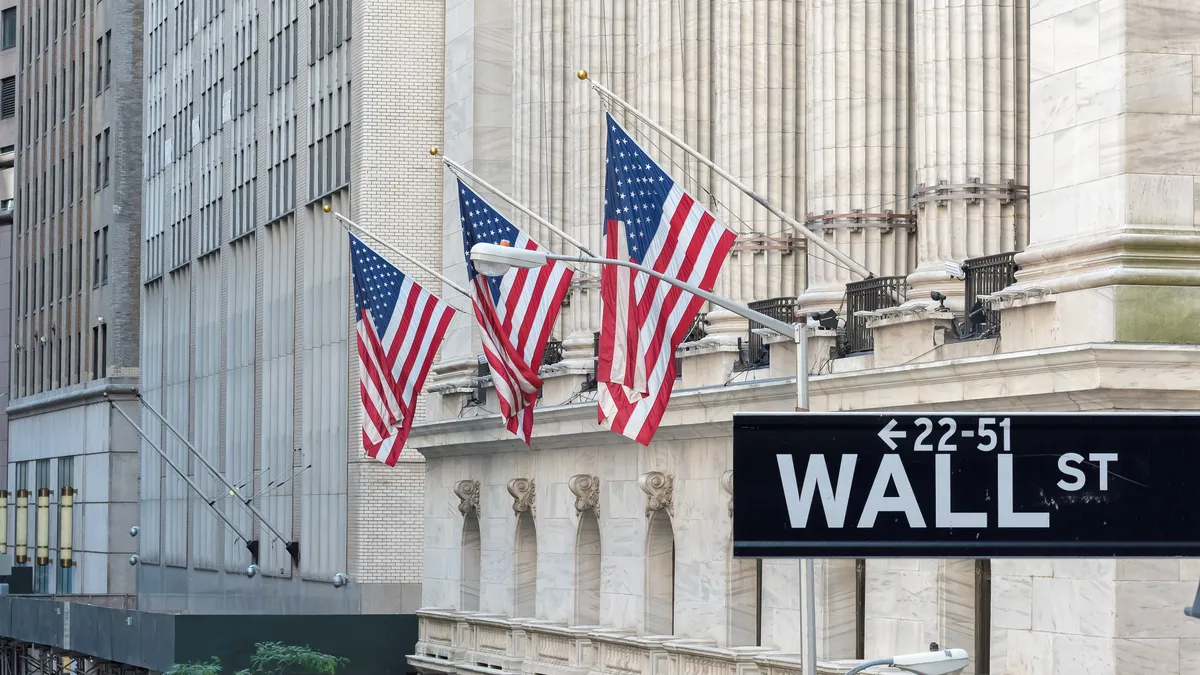The average Wall Street bonus dropped 26% last year from a record 2021 as rising interest rates and a slump in dealmaking weighed on banks’ profits and subsequent employee compensation, New York State Comptroller Thomas DiNapoli said in a report published Thursday.
The industrywide bonus pool sank to $33.7 billion in 2022 from $42.7 billion – a 21% drop, the largest since the Great Recession. Last year, securities employees received $176,700 as bonuses, a sharp decline from $240,400 in 2021, bringing it back to pre-pandemic levels.
“Wall Street’s cash bonuses were expected to fall as several factors weighed on the securities’ industry profitability in 2022,” DiNapoli said in a statement. “A 26% decline brings the average bonus closer to what financial employees received prior to the pandemic. While lower bonuses affect income tax revenues for the state and city, our economic recovery does not depend solely on Wall Street. Employment in leisure and hospitality, retail, restaurants and construction must continue to improve for the city and state to fully recover.”
The comptroller’s 2022 estimates are based on personal income tax withholding trends, including cash bonuses for work done in 2022 and deferred bonuses that have been cashed in. However, it does not consider stock options or other forms of deferred compensation for which taxes have not been withheld.
In October, the annual New York City securities industry report highlighted that Wall Street earnings slid in the first half of 2022, signaling an end to the pandemic boom that saw record payouts.
This year’s analysis stands in sharp contrast with that DiNapoli’s report from the year before when Wall Street bankers took home an average bonus of $257,500 in 2021, up 20% from a record set a year earlier.
According to Bloomberg Intelligence, investment-banking fees across the five biggest Wall Street banks plunged 49% in 2022 as the war in Ukraine impacted the market and lowered corporate confidence — a reason DiNapoli mentions in his report.
In 2022, Wall Street’s pretax profits plummeted 56% from that of the previous year due to a decline in investment banking fees driven by interest rate hikes by the U.S. Federal Reserve, inflation and geopolitical turmoil resulting from the Russia-Ukraine war, the report noted.
Wall Street bonuses have a significant impact on the state and city budgets, with the securities industry accounting for 22% or around $22.9 billion of state tax revenue in the 2022 fiscal year and 8% or $5.4 billion of city tax revenue, DiNapoli projected in the report.
The comptroller estimates that in 2022 New York City’s securities industry will generate $457 million less in state income tax revenue and $208 million less for the city compared to the year before.
For the first time since the pandemic, the city’s securities industry added around 190,800 jobs reaching the highest level in over two decades, the report said.
Since some large financial firms have left New York City, the sector employment continues to drop, DiNapoli pointed out. In 2022, employment in the securities sector was 5.1% lower than in 2000, which saw the peak of securities employment in the city.
One in 11 jobs in New York City is either directly or indirectly linked to the sector, DiNapoli estimated.
Wall Street’s continuous push for workers to get back to the office has led to a rise in spending and boosted the use of public transport since 43% of securities employees take the subway, DiNapoli noted.
Wall Street was responsible for 16% of all economic activity in the city in 2021, hence “the financial sector’s ability to generate revenue and turn profit is critically important to New York”, the report said.














